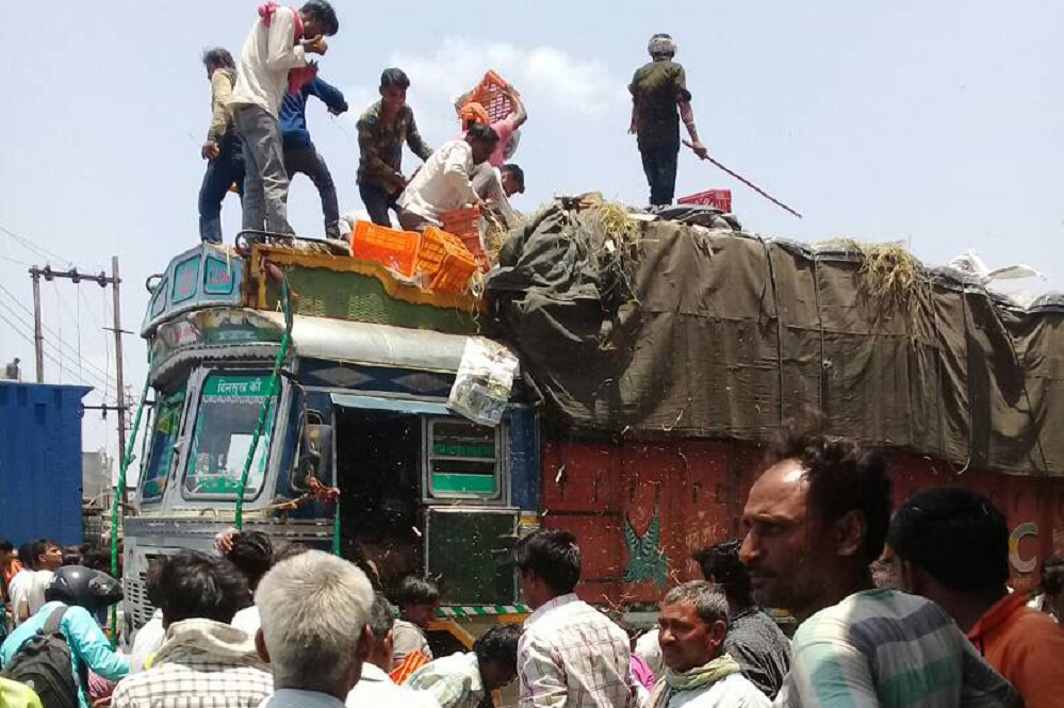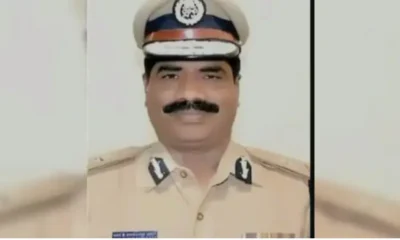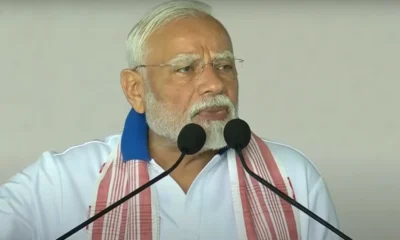[vc_row][vc_column][vc_column_text]Problem revolves around increase in production and fall in prices
Parsa Venkateshwar Rao Jr
New Delhi: There is a clear recognition on the part of the BJP-led NDA government of Prime Minister Narendra Modi that it is caught in a cleft as it were, and there is not much it can do about the farmers’ protests that have broken out in Madhya Pradesh, Maharashtra, Tamil Nadu, Karnataka, Telangana. Political opponents are not being blamed for the problem, and there is an acknowledgement that there the farmers’ anger stems from a crisis situation, which ironically is an outcome of increased production.
Here is what a highly placed sources in the government told APN Live, on condition of anonymity. It is being conceded from concerned quarters that the farmers’ agitation in Madhya Pradesh, Maharashtra, Tamil Nadu, Karnataka is arising from a plentiful crop looking for reasonable returns. Farmers are angry and frustrated because they are not getting the price they need to recoup costs because of overproduction, whether pulses, oilseeds or onions. Prices have nosedived in the market, partly aggravated by imports as in the case of pulses from countries like Myanmar, Mozambique and Canada.
It has been indicated that imports are being rationalised but the government is not in a position to put a stop to imports in order to shore up domestic prices of pulses. Though production in pulses has improved, touching a high of 18 million tonnes, it still falls below the consumption needs, which stands at around 23 million tonnes. It is also the case that government cannot procure the entire produce because it is economically and logistically unfeasible though farmers want that government buy up the entire produce.
The increase in the production of pulses and other non-cereal crops is being seen as a success by the government because the policy has been towards crop diversification. It is being claimed that it is because of incentives including that of an attractive minimum support price that more farmers have taken to non-cereal crops.
The government is however working on long-term strategy. It wants to provide storage facilities so that the farmer can keep his produce in safe condition and sell it in the market at an opportune time. This is more so in the case of onions. To avert the disaster of onions rotting because they could not be sold, government with the help of the Bhabha Atomic Research Centre (BARC) is working at the process of irradiating onions, which will suck out the moisture, and preserve it for a longer period. In the case of onions too, storage turns out to be a key factor though the technological intervention of using radiation to preserve them is helpful.
It is being conceded that infrastructure cannot be created overnight and that it takes time. Here too, there is no attempt to blame the previous government for not having done enough about infrastructure. Modi government is grappling with the actual problems of governance.
When it was suggested that one way out of the production glut of onions would be to allow exports, and this was the demand of the farmers as well, Prime Minister Narendra Modi felt that the export incentive would benefit the traders rather than the farmers. The farmers however wanted to dispose of their crop whatever the loss.
It has also been accepted that real time information about acreage for any crop is not available and that this makes it difficult to make reasonable estimates of output and tweak the MSP as well as imports accordingly.
Rationalising imports is causing embarrassment with countries like Canada in the case of pulses and with Malaysia and Indonesia in the case of palm oil. Government is now insisting on import of raw palm oil so that value-addition through refinement and its use in cosmetics could lead to job creation in the country.
The same argument seems to hold good in the case of crude oil imports. Government is happy about increase in imports because that would help in creating jobs in petroleum products and by-products, which in turn lead to exports apart from creating jobs.[/vc_column_text][/vc_column][/vc_row]


 Cricket news16 hours ago
Cricket news16 hours ago
 Latest world news15 hours ago
Latest world news15 hours ago
 Latest world news16 hours ago
Latest world news16 hours ago
 India News12 hours ago
India News12 hours ago
 India News7 hours ago
India News7 hours ago















